Wlodzimierz Redzioch speaks with Mons. Javier Echevarría, prelate of Opus Dei, about the beatification of St. Josemaría Escrivá’s first successor.
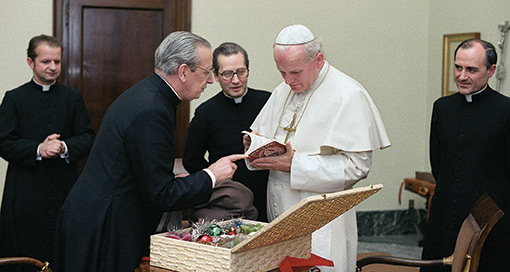
Echevarria in 1978 between del Portillo and John Paul II (notice a young Fr. Stanislaw Dziwisz in the background on the left).
Many people remember the date of July 5, 2013: that was the day Pope Francis authorized the promulgation of the decree of the Congregation for the Causes of Saints regarding the miracle attributed to the intercession of Blessed John Paul II, opening the path to his canonization. Not everyone knows, however, that during that same audience, the Pope also authorized Cardinal Angelo Amato, the Prefect of the Congregation for the Causes of Saints, to proclaim the miracle attributed to the intercession of Bishop Álvaro del Portillo (1914-1994), the first successor to St. Josemaría Escrivá de Balaguer as head of Opus Dei, thus paving the way for his beatification.
The solemn ceremony for Mons. Álvaro’s beatification took place in his native city of Madrid, on September 27, with Cardinal Angelo Amato presiding. On September 28, Mons. Javier Echevarría, Prelate of Opus Dei, celebrated a Mass of Thanksgiving.
At this joyful moment for Opus Dei, Mons. Echevarría kindly agreed to my request for an interview…
On September 27, in Madrid, Mons. Álvaro del Portillo, successor to Josemaría Escrivá de Balaguer as head of Opus Dei, was beatified. Who was Blessed Álvaro?
Mons. Javier Echevarría: Álvaro del Portillo was first an engineer, and then a priest, and later a bishop, who loved the Lord, the Church, and all souls, very much. Perhaps the key feature of his personality was his desire to carry out faithfully the will of God in every moment. He was extremely likeable, and always wore a smile. He was goodhearted, and had a delicate character, inherited in part from his mother, Doña Clementina, who was from Mexico, and acquired also from his constant practice of the virtue of charity.
The Holy See’s declaration on his heroic virtues describes him as “a man of profound goodness and affability, able to transmit peace and serenity to souls.” The Lord used his personality to bring many people closer to the Church.
He had a special love for the Sacrament of Penance. He always spoke about it, during his catechesis. When a journalist asked him what the happiest moment of his life had been, he immediately replied, “Every time I received God’s pardon in Confession.”
He was also a thankful man. “Thank you” and “Thank God” were some of the words that most often came out of his mouth. He repeated them many, many times a day.
His character never lacked a spirit of constant service to others. In the years of his youth, he would often go to the poorer outskirts of Madrid, to teach catechesis and offer material aid to those most in need. This was his approach throughout his life. Following the example of St. Josemaría, he promoted numerous social initiatives around the world in favor of the most needy, such as Monkole Hospital in Congo, or the Pedreira Educational and Professional Center in a Brazilian favela. He promoted this spirit of responsibility among business people and, generally, among men and women of economic means. He considered these social and educational initiatives to be an obligation deriving from justice and charity, which must guide Christian works: they were the basis of sincere love towards all.
The Church beatifies and canonizes holy people to give believers examples to imitate. What were Mons. Álvaro’s most distinguishing saintly characteristics that can be imitated today?
I will mention three aspects that always caught my attention: his faithfulness, his humility, and his smile.
He was a model of faithfulness to the Church and the Popes he knew (from Pius XXI to John Paul II), as well as being faithful to his vocation and to the founder of Opus Dei. In his pastoral work he would speak, too, about faithfulness in married life, within the family, in friendships, etc. He brought people to the understanding that faithfulness is a creative virtue, one that requires daily renewal through small and continuous acts of love. I think this is an important example for today’s world, which is so critically at odds with the values of strong family and social relations.
I would also like to spend a moment discussing his humility: whoever worked with Mons. del Portillo during the Second Vatican Council found that he never sought to assert either himself over others, or his opinions over those of others. He had great human and intellectual qualities, but he always wanted to live out his duties in a discreet way: both the duties he had in Opus Dei, in which his only goal was to help St. Josemaría carry out his mission; and his duties at the Holy See, which he carried out while focusing exclusively on giving glory to God and souls.
In 1975 he was called to be the successor to the founder. His program for leading Opus Dei had one sole objective: maintaining continuity. With sincere humility, he affirmed that he desired nothing more than to be the shadow of St. Josemaría’s presence on earth. In this way, he was following the advice of the future Blessed Paul VI, who, in 1976, told him that he should always think about how the founder would have acted, whenever it came time for decision-making.
Finally, I believe that behind his constant smile, visible to all, there lay hidden an outstanding characteristic in his Christian path: he always thought of others and forgot about himself. This attitude made him a blissful man, and a sower of peace and happiness.
What miracle was attributed to Mons. Álvaro’s intercession?
The miracle approved by Pope Francis is the full recovery of a Chilean baby, José Ignacio Ureta Wilson, in August 2003. After suffering cardiac arrest for 30 minutes, along with a massive hemorrhage, not only did he continue living, he also recovered completely, with no neurological after-effects whatsoever. His parents prayed with great faith for the intercession of Mons. del Portillo and, when the doctors thought that José Ignacio had died, his heart began beating again, without any further intervention. Today, 11 years later, he is living a perfectly normal life.
Josemaría Escrivá de Balaguer, founder of Opus Dei, has already been beatified and canonized. Now his successor, head of “The Work” from 1975 to 1994, is being beatified. Does the charism of Opus Dei help in personal sanctification?
The message of Opus Dei is, precisely, the universal call to holiness. In this sense, Mons. Álvaro’s beatification reminds us that each of us can become a saint in the normal, everyday circumstances of our work, our family relationships and friendships. I ask God that the Prelature of Opus Dei might keep reminding many, many people of this, so that it can help millions of people find God through their work and common, everyday life.
John Paul II had a very important role to play in Opus Dei’s history. He established “The Work” as a “Personal Prelature.” Later, he beatified Josemaría Escrivá (on May 17, 1992), then canonized him (on October 6, 2002). But not everyone knows that first as Karol Wojtyla, and later as Pope John Paul II, he had quite frequent personal contacts with members of Opus Dei, and among these was Mons. Álvaro del Portillo. What can you tell us about this relationship?
St. John Paul II and Blessed Álvaro del Portillo met at the Second Vatican Council. After Cardinal Karol Wojtyla’s election as Vicar of Christ, they shared a profound unity and closeness, exhibited, on the Opus Dei Prelate’s part, by solid filial trust.
I think they were so very in tune with one another because they were both priests, both bishops, in love with the Church and with a great love for souls. Mons. Álvaro del Portillo admired the Pope-Saint’s generosity and dedication, and faithfully tried to carry out all the evangelical initiatives he proposed. Maybe this is the reason that John Paul II encouraged many priests to seek out spiritual support from Mons. del Portillo.
This filial contact, one of cooperation, was frequent, and lasted up to the last day.
I feel that a small fact demonstrates this: the day before he died, Mons. Álvaro wrote a post card from the Holy Land, in which, through the Pope’s personal secretary, he expressed his “desire to ser fideles usque ad mortem” (to be faithful until death) in his service to the Church and the Holy Father.
I can’t fail to mention another memory, because for me it was a moment of grace and consolation: after Mons. del Portillo passed away, John Paul II decided to go to pray before his mortal remains, at the prelature church of Santa María de la Paz.
Between these two men there truly existed a strong spiritual understanding.

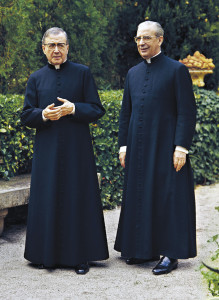

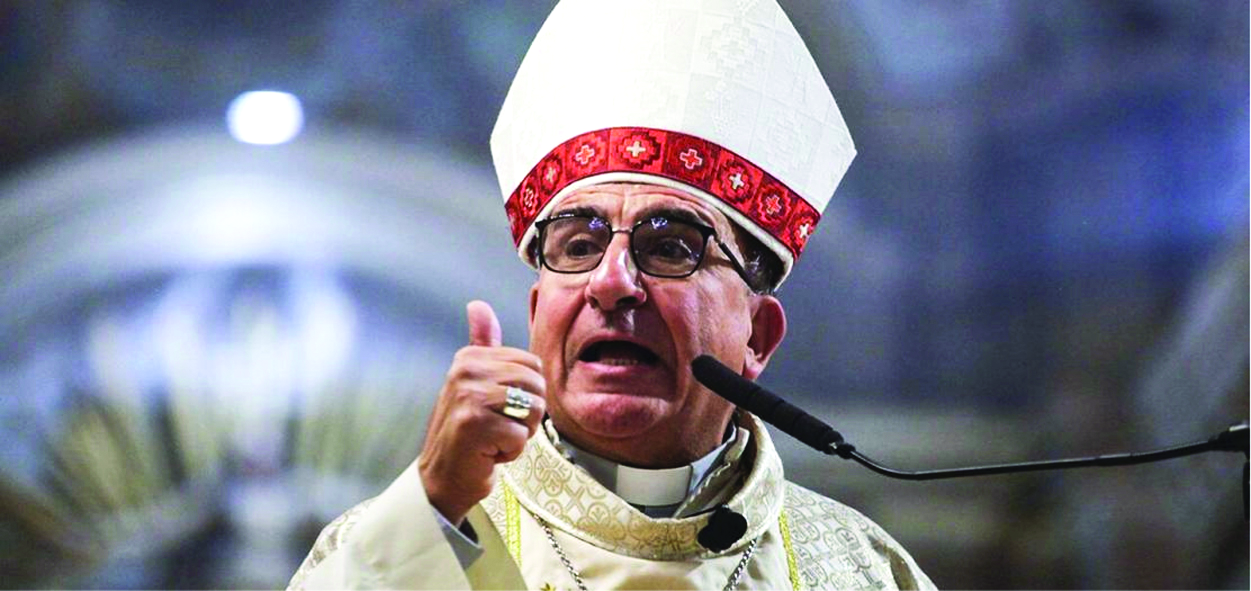
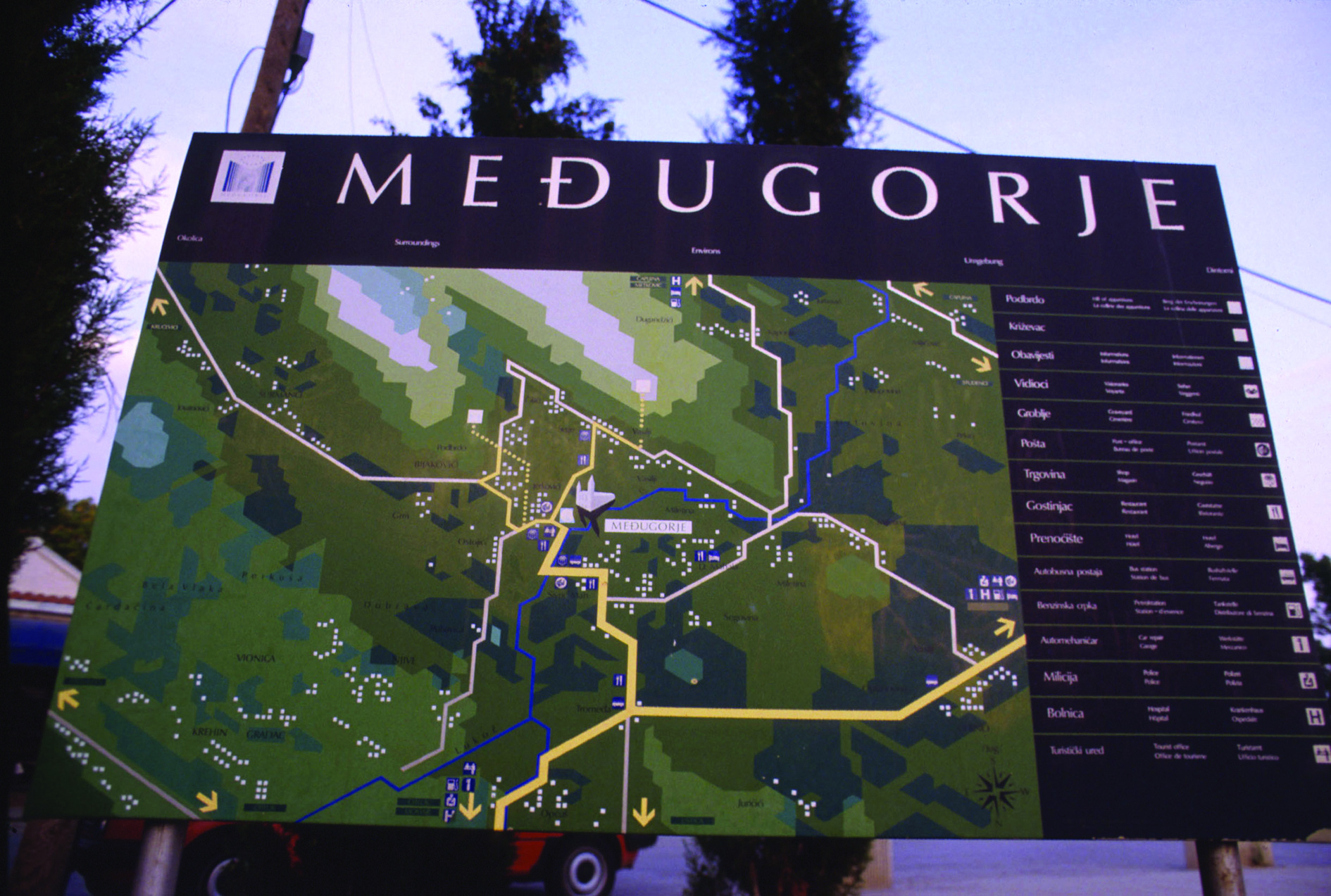
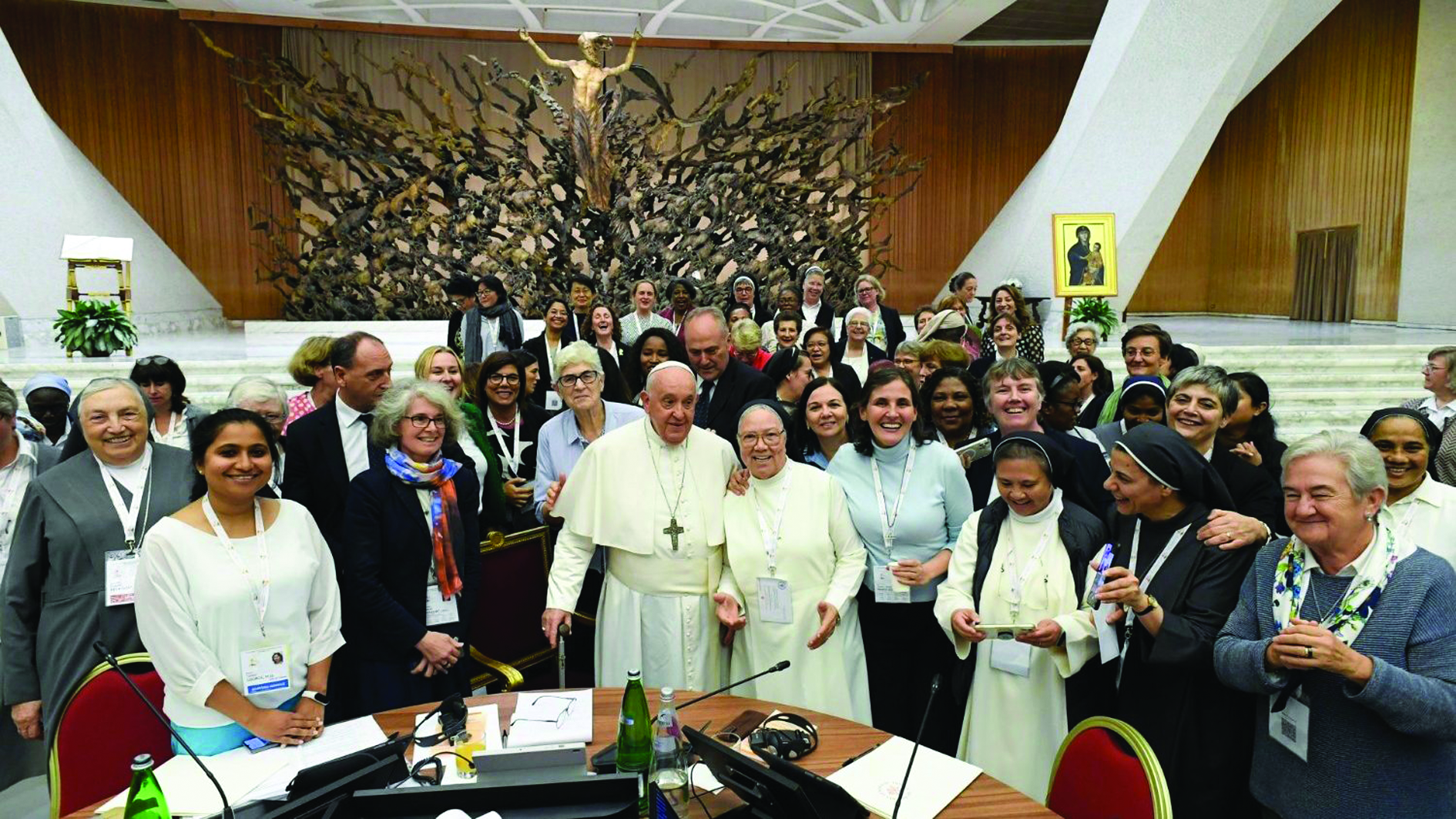

Facebook Comments